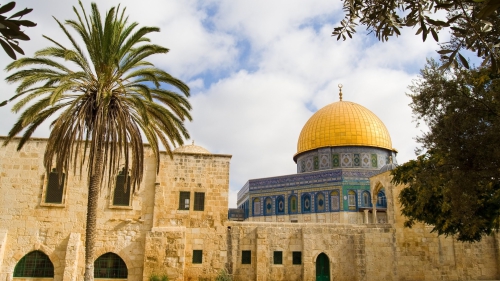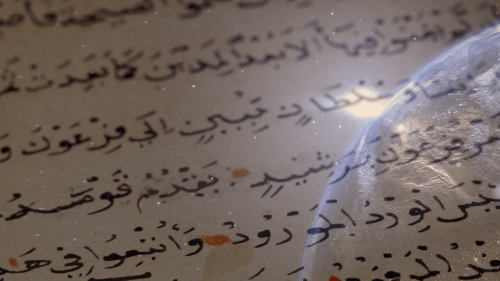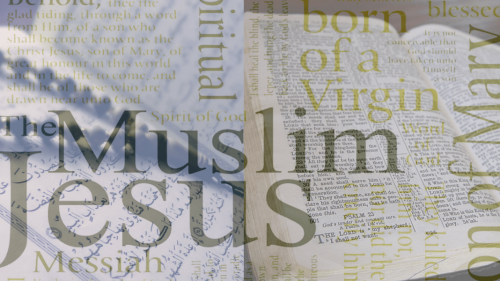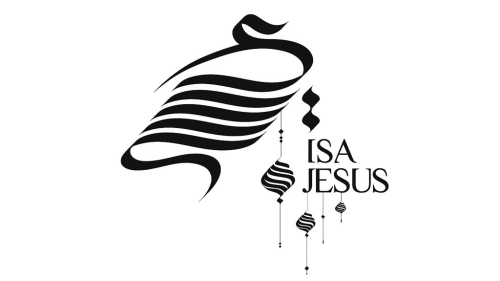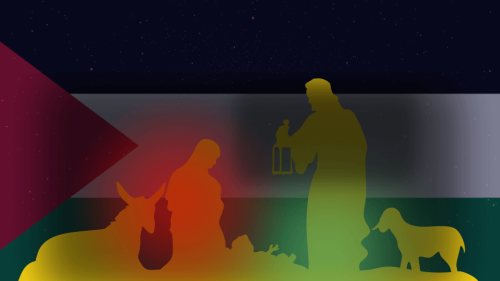Something about "Sighting Mary"

The same week that Rome announced a new Pope, headlines appeared in the Chicago press about a sighting of Mary, Mother of Jesus. Motorists saw her image, they say, on a discolored wall of the Fullerton Avenue underpass of the city's Kennedy Expressway. With a tilt of the head and liberal imagination, one can make out what looks like a rough draft of a medieval artist's conception of Mary, which has become the canonized image familiar to most Christians, especially Catholics. To the left of the likeness, an inscription reads, "Satan Loves U," composed beneath a pentagram associated with the occult.
In swift fashion, men and women crowded before the water stain, to stare, light candles, weep, supplicate, thumb their rosaries, take pictures with their cell phones, bring their hopelessly ill, and drop flowers at the alter of fractured concrete and some interesting graffiti.
It is true that religion does not fare well when confined to an abstraction. We are charged to believe in the Unseen, not the unfelt. Whenever religion alights someplace, religious culture and art usually follow. In Muslim tradition, however, this art shies away from depictions of humans, relying on what is arguably more powerful and authentic spiritual effulgence: the voice, architecture, calligraphy, intricate patterns (with symmetry and without), poetry, interior design, gardening, and the like. Islam, in general, has a problem with human depictions and the customs that lead people to invest in and expect much from them. One suspects that the issue exceeds concern about idolatry. Islam attaches greater importance to the inner habiliments of spirituality meant to engender degrees of certitude that stand like oaks. Images of humans (even spontaneous ones) and their role in spirituality have presented problems in the past because people ultimately depend on them and on their transient and weak natures, thus impairing the more rewarding and durable qualities hidden within us all, which are roused most by revealed words.
The Quran presents narratives of past saintly and prophetic figures, told in a single passage (as with Joseph) or presented in separate "revelatory" treatments that highlight different aspects of the same story. The narrative of Mary and Jesus, especially in the 19th sura (or chapter) of the Quran, is conclusively powerful. It proffers an amazing "image" of this great woman by mapping indelible words to persona. It bespeaks again of the miracle of language in general and revealed Arabic in particular.
In Mary's day, religion had been calcified, reduced to hairsplitting debates on Sacred Law and its manipulation for political sway. The point of revealed religion seemed to have been lost. A spiritual connection with God and active remembrance of Him became things for fools. Certitude was orphaned by indifference, its methods forlorn. In such a petrified context, it would take suspensions of the natural order to bring people back to their senses. Never did any of these suspensions, or miracles, confront the primordial truth, namely, God is God, everything else is not, was not, nor ever will be to any degree.
Of Levitical lineage, the preeminent priestly line of the Children of Israel, Mary devoted herself from a very early age to prayer, contemplation, and the study of the sacred. It was in her prayer chamber that an intruder startled her, an angel who appeared to her in the form of a full-fledged man. Barely able to speak, she attempted to scold him and at last reminded the intruder of God's might. She appealed to him that he fear God, if such fear would ever occur to someone with the audacity to violate the Holy House and enter into the secluded company of a virtuous woman chosen to serve the spiritual needs of her people. The intruder then spoke. His voice and demeanor, his noble countenance and comportment, were not of a man inclined toward evil. He apprised her of his true identity and then announced a shot of words that troubled the young woman, but would also polarize the world.
"You will have a son!" Angel Gabriel told the virgin. The matter was done: a boy, a human being of flesh and intelligence, of insight and mission, would grow in her, though no man had ever touched her. In her prayer chamber, she had lived most of her life, spending her days and nights contemplating and learning of things that can only be learned in such a manner, with such immersion. Wholesome food, drink, and out-of-season fruit simply appeared in her chamber at God's command, signs that amazed the guardians of the faith. She would see purpose and portents in God's creation and peer beyond veils that otherwise cover the vision of those dedicated to play and the trivial.
Though the conception of her son was miraculous, the normal trials and pains of delivery would not bypass her. In time, the contractions bore down on the young woman, driving her to take shelter beneath a date-palm. Right there, beneath the withered tree, did she give birth to Jesus. Grief-stricken and depleted, Mary heard a voice calling out to her, telling her not to sorrow or desire annihilation. A streamlet appeared before her with fresh and pure water. She was then told to shake the trunk of the date-palm. She managed to stand up and shake the tree with her trembling arms; she worked with ordinary forces of nature to have dropped upon her a miraculous bunch of ripened dates as if the date-palm had been the most fertile plant on earth. Her mind and body were replenished.
She now was prepared to take her infant to her people. Against the visible shock of her kinfolk and their accusations and demands for an explanation, she simply pointed toward baby Jesus. Defense of her chastity and honor would be as marvelous as the babe now reclined in a cradle. The biology of procreation hamstrung the good thoughts that her family had held out for Mary. They were vexed, in fact, that she expected them to hear from a newborn. Their anger dropped a veil between them and the fact that everything belongs to God, every biology and miracle, the explainable and the inexplicable, whether it is the creation of Adam from clay or the conception of any given child of two parents. It is all the same to Him; all of it easy.
Only days old, the child spoke. He exonerated his virgin mother, stunning the crowd with speech that only adults are capable of. He declared himself as a worshipper of God and as God's apostle to the Children of Israel. His terms were clear, as they would be throughout his life. Such was the limpid discourse of all the prophets and messengers. There was triumph in Mary's faith, a victory that was won not that day, but in the days of her life before.
Jesus would be most excellent to his mother, never insolent, always gentle and kind, as the Quran is keen to say, emphasizing Jesus' respect for his mother for her parental role but also to honor her chosen status. He would be a sign to the worlds and a friend of the blind, whose dead eyes would come to life with the wave of a hand. The leper, with a compulsory bell around his neck, also found relief, perfectly cured of a dreadful disease that consumes the skin, devours distal limbs, and cordons off its victims from a normal life. A clod of clay would suddenly flitter in Jesus' hands and fly away as a live bird. A decaying corpse would abruptly inhale, and live blood would color its flesh, quicken its sinews, revitalize putrefied organs, and awaken the mind. All of this, Jesus would insist, is by God's permission, signs from the Giver of Life-signs for those given life that they should never doubt the possibility of a Resurrection.
Mary and Jesus would become in years to come, well beyond their earthly lives, the center of a tumultuous religious dispute. A faction will strive to impute Mary with evil designs and questionable morality, and insist on biology as their proof. They would attempt to strip her of her station as a spiritual master and declare her son a zealous renegade. Others will develop a theology of their own in the crucible of a full clash between the religious establishments in such ancient centers as Alexandria and Constantinople, a struggle of how to negotiate a formidable pagan milieu. A world civilization, complex art, and distinct culture will be founded on the dogma that God was a man and a man was God incarnate: God as flesh, bone, and muscle; God as marrow, hair, and glands; God subjected to the Roman authority, men whom He Himself created from nothing. For centuries, people will depend on the arguments of this incredible schism for their faith and thought life.
As a Muslim would say, however, a decisive Word would come down in the desert to a son of Ishmael. Centuries before, Jesus spoke to his disciples of him, calling him "Ahmad," a name phonetically similar in Aramaic and its sister tongue, Arabic. Revealed to the unlettered man, a Book will preserve the important accounts of the distant past, including the awesome story of a virgin, her son, and a date-palm.
In the end, the brevity of our lives demands an explanation. If we were to live forever on earth, there would be no point to any theology or rationalization. It is the emergency of our mortality that drives us to want answers, even if it takes some people on a pilgrimage to a Chicago viaduct, something that I do not ridicule or disparage. We may differ about images and their importance, but we are clear about the necessity of seeking answers and transcendence in a terribly materialistic world. It is intuitive and unmistakably alive.
Ibrahim N. Abusharif is the editor of Starlatch Press. He may be reached at [email protected]. You may visit his blog: http://fromclay.blogspot.com.
Topics: Mary (Mother Of Jesus), Prophet Jesus (Isa)
Views: 5374
Related Suggestions
Yours Sincerely,
Meriam Bakker.
The suds disappear in seconds but what benefit people remain on Earth.
May Allah reward you with the best rewards brother Doctor Scholar Ibrahim? (you may laugh reading this, while I know you take yourself as a simple human being) but comparing you to many writers here, who some of them consider temselves scholars and doctors(you can inclue me no problem :) ), you are a Doctor and Scholar and... I can't find the right word to describe you from what you wrote, who will not make you in same level with those who waste Islam.org bytes. thank you so much for putting things down in the right manner who justify that the words of Allah are a shortcut for humanity to reach the wisdom without wasting time in experiencing everything.example: we don't have to fall victims to drugs inorder we can draw a conclusion that drugs should be banned. God gave us everything free of charge but we are born to argue with anything! we leave the sense and we enjoy spend time trying to defeat the words of the Almighty... result: after 1400 years the smart disbeliever joins the believer in understanding that drawing images got very bad side who can lead a whole nations to believe in hallucinations, fairy tales but not to the Truth coming from the Almighty. there is no doubt those who use the fictive side of human brains to control people, laugh at what they see them doing. they don't care to the books they claim to believe to! they rely always on playing other humans with the words who got deep effect on human brains (like "love", "peace", "free heaven"...). in our time you can be more successfull in bringing new religion who rely on good words, good music, good drugs, good time and free ticket to the heaven, then in trying to teach the right words of the Almighty. you see people act like drunks but they are not drunks. they are maybe unable to wake up without the help of the Almighty. Oh Allah! please help all of us? Ameen






